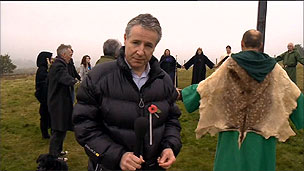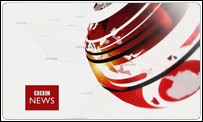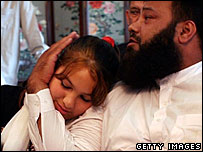BBC reports on pagans at Halloween
How many of us really know what Halloween is about and why we're celebrating it? Yesterday on the News Channel and this website we covered a pagan festival and explained what paganism is, prompting some newspapers to accuse of us down-playing Christianity. A Telegraph blog post describes our religious affairs correspondent as "enchanted by paganism" and a Daily Mail headline reads "BBC accused of neglecting Christianity as it devotes time to pagan festival".

It was Halloween. A good chance, we thought, to explore the background to paganism. I would simply suggest that the decision to cover some aspects of paganism on one day indicates an interest in the fact there is in the UK a range of faiths - and among some a lack of faith. Our reporting should be seen in the context of BBC News's wider coverage of religion and religious events where stories, as ever, are based on topicality and editorial merit. And Christianity - being the country's main religion - still remains the faith with the most coverage.
The idea yesterday was to look at a range of beliefs - outside the majority faiths - which have been on the increase around the UK. Interestingly, as Robert Pigott reported, druidry has just been recognized by the Charities Commission.
Only a few weeks ago, there was debate about the BBC's coverage of the Pope's visit to Britain, with some arguing that we reported too much on the visit. This included much discussion on the role of the Catholic Church, Christianity and the values of modern Britain.
We will continue to explore and explain the background to the events that our audiences celebrate - no matter what their religion might be - and will do so without downplaying anyone's personal beliefs.
Kevin Bakhurst is the controller of the BBC News Channel and the BBC News at One and the deputy head of the BBC Newsroom.



 Firstly some facts: even now as we move into the third week since Madeleine's disappearance, the story is still resulting in very high news audiences. This isn't always the decisive measure but it does seem to represent a high level of interest from the audience. Secondly, the number of complaints to the audience log at the BBC over the amount of coverage are still at a low level: yesterday, there were ten complaints. I personally have a number of e-mails complaining about the coverage, but they are all from one person.
Firstly some facts: even now as we move into the third week since Madeleine's disappearance, the story is still resulting in very high news audiences. This isn't always the decisive measure but it does seem to represent a high level of interest from the audience. Secondly, the number of complaints to the audience log at the BBC over the amount of coverage are still at a low level: yesterday, there were ten complaints. I personally have a number of e-mails complaining about the coverage, but they are all from one person. When the pictures came in, we watched them all and although the British personnel looked strained and were almost certainly acting under duress, they looked in good health and said they had been treated well. The Ministry of Defence said that it hoped that this would be some comfort to the families and Naval colleagues at the moment - a sentiment we share.
When the pictures came in, we watched them all and although the British personnel looked strained and were almost certainly acting under duress, they looked in good health and said they had been treated well. The Ministry of Defence said that it hoped that this would be some comfort to the families and Naval colleagues at the moment - a sentiment we share.

